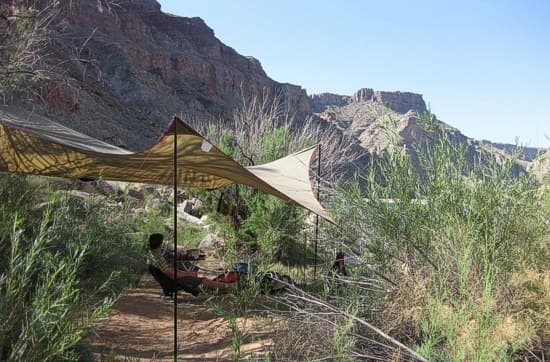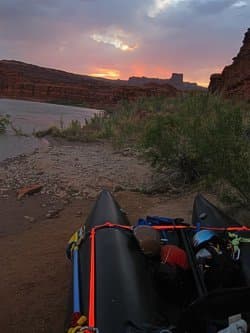How to Minimize your Impact on Overnight Paddling Trips
As avid paddlers, we know the importance of taking care of our environment. As a working part of the Subaru/Leave No Trace Traveling Trainers program, we came up with this list of Top 5 Tips on how to Leave No Trace on an overnight paddling trip.
- Do your homework. Know the rules and regulations of the area you are paddling in.
a. Research the human waste disposal requirements to see if you should pack out solid human waste or dig a cathole. Check to see if liquid waste can be dumped directly into the water source (typically the flow has to be over 500cfs).b. Research what invasive species are in the area and how you can prevent their spread.
c. Check to see if you can have a fire, if you need a fire pan, and if wood or driftwood collection is allowed.
d. Be prepared to properly secure your food from animals and check to see if bears are active in the area. Check local leash laws and if dogs are allowed on the river corridor.
e. Check to see if there are group size regulations and if you need a permit.

2. Good campsites are found, not made. Choose sandy beaches or gravel bars for your campsites. If you are unable to find sand or gravel to camp on, find a previously used campsite and try to minimize spreading the boundaries (soil compaction makes up the extent of a site and plant life is the boundary line).
3. Let nature's sound prevail. Sound travel well over water. Avoid using stereos and keep a low profile when you paddle past a camp. Please allow others to have a true wilderness experience by respecting their time on the water.

4. Be a good paddling neighbor. Leave large campsites for larger groups and don't send runners (one boat paddling ahead of the party to secure a campsite for that night). Sending a runner boat can cause parties to compete and rush their trip, which leads to unsafe paddling.
5. Keep a clean camp. Dispose of your solid waste properly and liquid waste properly. Make sure food doesn't get left around for animals to find because it encourages habituation and attraction in the animal. Pack out all your trash and check for micro trash (small pieces of trash like the corner of a granola bar wrapper).
This article was used by permission of Leave No Trace Center for Outdoor Ethics
Patrick and Theresa Beezley are part of the 2015 Subaru/Leave No Trace Traveling Trainer Program that provides free, mobile education to the general public, volunteers, youth, nonprofit organizations, friends groups, governmental agencies, and more on Leave No Trace skills and techniques intended to reduce the impact of outdoor activities in communities around the United States. Contact them if your organization would like to schedule a presentation.
Related Articles
This question is from imsealin – they asked how long should a kayak be for sea kayaking, and can it be…
One of the considerations for deciding which type of material you want your kayak to be made from…
I've been busy lately rearranging my cooking essentials: the little tools that I can't do without. Of…
A discussion on the use of a compass from a kayaking standpoint begins with basic compass savvy and then…



